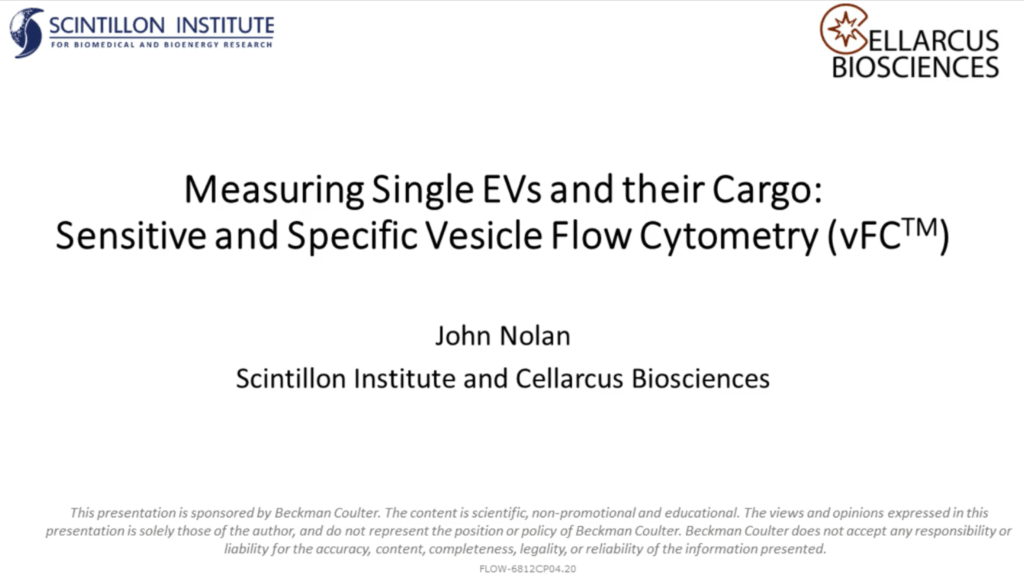Current MISEV guidelines recommend measuring an EV associated protein. Although tetraspanin (TS) expression on EVs is heterogenous and not ubiquitous, the majority of EVs express some level of at least one of the common tetraspanins CD9, CD63, or CD81. The tetraspanin vTag™ cocktail labels these proteins and is sufficient comply with MISEV guidelines for most EVs.
Use a PE anti-TS vTag™ cocktail when sizing and counting EVs. If also using the kit to support no-wash immunofluorescent EV cargo measurement, you may select PE or another conjugate to adhere to principles of proper multicolor panel design. For example, a PE-Cy7 anti-TS cocktail is useful in some panels because it frees up the PE channel on the instrument and cargo of interest can then be measured using a PE conjugated antibody which are more widely available.
Cellarcus offers several bright vTag™ antibodies validated for sensitive, no-wash cargo detection using vFC™. Select other or use the site search to find available products. If you don’t see what you’re looking for, contact us. Our vTag™ catalog is always expanding.


